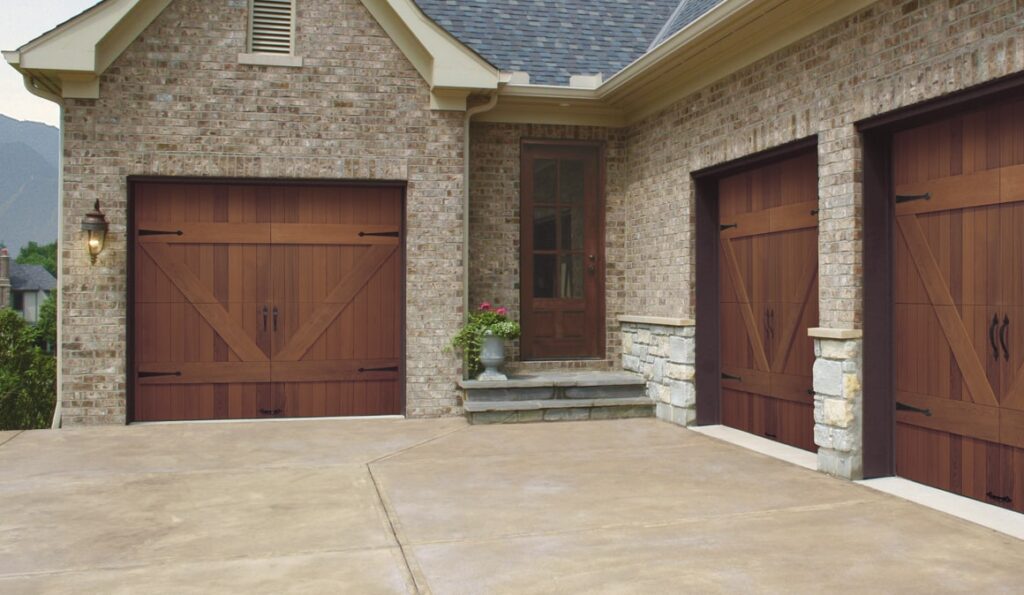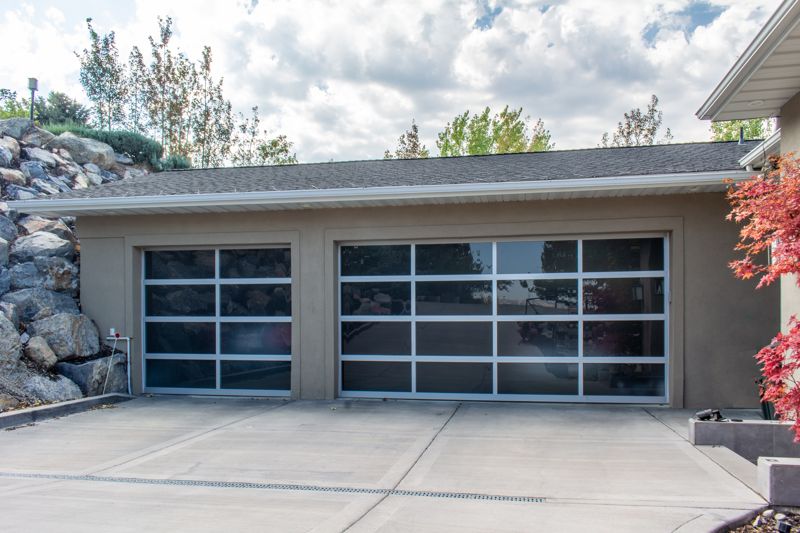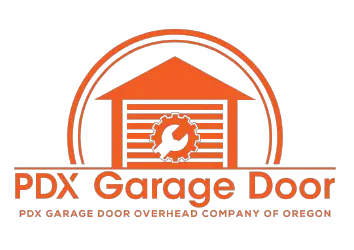
When it comes to selecting the ideal garage door panel material, homeowners in Portland are faced with a plethora of choices, each boasting unique attributes that can significantly impact aesthetics, functionality, and maintenance requirements. The decision extends beyond mere curb appeal, delving into considerations of durability, insulation, cost, and environmental impact. In this guide, our experts at PDX Garage Door will delve into the pros and cons of various garage door panel materials, giving you essential information to make an informed choice.
Wood, renowned for its timeless charm and often used for custom garage door panels in Portland, stands as a classic option, while steel offers a blend of resilience and affordability. Aluminum, on the other hand, provides a lightweight alternative with its corrosion-resistant properties. For those who prioritize energy efficiency, insulated options can significantly enhance climate control within the garage space. However, not to be overlooked are the potential downsides of each material: wood’s susceptibility to weathering, steel’s proneness to dents, and aluminum’s susceptibility to corrosion. Join us as we navigate through the available options.
Understanding Your Choices: Navigating the Landscape of Garage Door Materials
Selecting the right material for your garage door panels is a decision that demands careful consideration, especially when it comes to garage door installation in Portland, as it directly impacts the door’s appearance, durability, maintenance needs, and even your home’s energy efficiency. With a variety of materials available, each offering its own set of advantages and drawbacks, it’s essential to understand the nuances of your options before making a final choice.
Wooden garage doors: These evoke a sense of charm and warmth, making them a favorite among homeowners seeking classic elegance. These doors can be crafted from various wood species, such as cedar, redwood, or hemlock, offering a diverse range of natural finishes. Wood’s aesthetic appeal, however, comes with a price: it requires regular maintenance to withstand the elements. Routine sealing or painting is necessary to protect against moisture, warping, and potential insect infestations. Additionally, wood doors might not provide the same level of insulation as other materials, which could affect your garage’s temperature regulation.
Steel garage doors: These doors offer a compelling combination of affordability and durability. They come in a variety of styles and finishes, allowing you to achieve different looks, including the appearance of wood through realistic coatings. While steel doors are less susceptible to damage from impacts and weather, they can be prone to dents and scratches. Opting for thicker-gauge steel can enhance its resilience, but it might also increase its cost. Additionally, without proper insulation, steel doors can transfer outdoor temperatures into your garage space, impacting energy efficiency.
Aluminum garage doors: These doors are valued for their lightweight nature and resistance to corrosion, making them an ideal choice for coastal areas or regions with high humidity. Their malleability allows for creative design options, and they require relatively minimal maintenance. However, like steel, aluminum doors can also be susceptible to dents and dings. They might not provide as much insulation as other materials unless they’re specifically designed with insulation in mind.
As you embark on the journey of choosing the ideal garage door material, keep in mind your priorities, be they aesthetics, durability, insulation, or maintenance requirements. By understanding each material’s unique attributes, you can confidently make an informed decision that aligns with your needs and enhances your home’s overall appeal and functionality.

Beyond Just Looks: Evaluating Durability, Insulation, and Maintenance Needs
When it comes to selecting the right garage door panel material for a potential garage door panel replacement, upgrade, or new installation, aesthetic considerations are just the tip of the iceberg. Factors like durability, insulation, and maintenance requirements play crucial roles in determining which material is the best fit for your needs and lifestyle.
Durability: This is an important consideration, especially when investing in a long-lasting addition to your house. While wood has a lovely look, it is sensitive to weathering over time and requires constant maintenance to avoid rot and warping. Steel’s intrinsic strength gives it greater resilience to collisions and weather-related wear and tear. However, keep in mind that steel doors might dent or scratch if subjected to strong blows. Aluminum is well-suited for coastal settings because of its corrosion-resistant characteristics; however, a thicker gauge is required for increased sturdiness.
Insulation: Garage doors are more than just barriers; they also contribute to your home’s energy efficiency. Insulated garage doors, available in both steel and aluminum, help regulate the temperature within your garage, preventing extreme heat or cold from seeping in. This is particularly important if your garage is connected to your home or if you use it as a workspace.
Maintenance: Maintaining your garage door is an ongoing responsibility that varies based on the chosen material. Wood doors demand regular painting or sealing to protect against moisture and pests. Steel doors typically require less maintenance, needing only occasional cleaning and potential touch-ups for scratches. Aluminum doors, with their rust resistance, generally have lower maintenance needs, but their surfaces might require occasional cleaning to remove grime and dirt buildup.
Considering these factors allows you to align your garage door choice with your lifestyle and priorities. If you value low maintenance and energy efficiency, insulated steel or aluminum doors might be the way to go. For a more traditional aesthetic that you’re willing to invest time in maintaining, wood doors offer timeless beauty. Ultimately, understanding the durability, insulation capabilities, and maintenance requirements of different materials empowers you to make a decision that enhances both the functionality and appearance of your home’s garage.
Making the Right Decision: Cost-Efficiency and Long-Term Implications of Each Material
As you delve deeper into the process of choosing the ideal material for a new installation or a potential garage door panel upgrade in Portland, it’s crucial to consider the financial aspect, both in terms of upfront costs and long-term implications. Each material option comes with its own set of costs and benefits that can significantly influence your decision-making process.
Wooden garage doors are often associated with a high-end, sophisticated appearance that can elevate the curb appeal of your home. However, this aesthetic charm comes with a higher price tag, not only due to material costs but also because of the ongoing maintenance required. Regular painting, staining, and sealing are essential to protect wood from weather-related damage and maintain its allure.
Steel garage doors strike a balance between cost, durability, and aesthetic versatility. They are generally more affordable than wood and require less maintenance. While they might not have the same natural elegance as wood, modern steel doors can mimic wood textures and finishes convincingly. Choosing a higher gauge of steel, which is thicker, can enhance the door’s resilience but may also increase the cost.
Aluminum garage doors are known for their lightweight nature, making them easier to operate and potentially lowering installation costs. They also tend to be more budget-friendly than wood or high-gauge steel doors. However, the trade-off can be seen in terms of durability, as aluminum is softer and more prone to dents. Thicker aluminum panels can mitigate this concern, but they might raise the overall cost.
When assessing costs, it’s essential to factor in the long-term implications as well. Understanding both the immediate expenses and the potential benefits down the road will guide you in making a decision that aligns with your budget and your home’s overall value.
Conclusion
In the end, the right choice depends on your priorities, your budget, and the specific needs of your household. By carefully evaluating the cost-efficiency and long-term implications of each garage door panel material, you can make an informed decision that enhances the beauty, functionality, and value of your home.
Choosing the right garage door panel material is a task that requires a balanced approach. As you’ve explored the pros and cons of various materials like wood, steel, and aluminum, you’ve gained insight into the factors that should guide your decision-making process. Remember, it’s not just about aesthetics; durability, insulation, maintenance needs, and cost-efficiency play pivotal roles in determining the best fit for your home.
Frequently Asked Questions
Question: Are there garage door materials that are best for specific weather conditions?
Answer: Yes, indeed. If you live in a coastal area with high humidity, aluminum’s corrosion resistance makes it a suitable choice. For regions with extreme temperature fluctuations, insulated steel doors can help maintain a more comfortable environment within your garage.
Question: How can I ensure my garage door stays in top condition over the years?
Answer: Regular maintenance is key. Wood doors require consistent sealing and painting to prevent weather-related damage. Steel and aluminum doors benefit from occasional cleaning and addressing any scratches or dents promptly.
Question: Will upgrading to an insulated garage door significantly impact my energy bills?
Answer: Insulated garage doors can help regulate temperature, which can indirectly influence energy costs. While the impact might vary depending on your specific circumstances, an insulated door can contribute to better energy efficiency overall.

